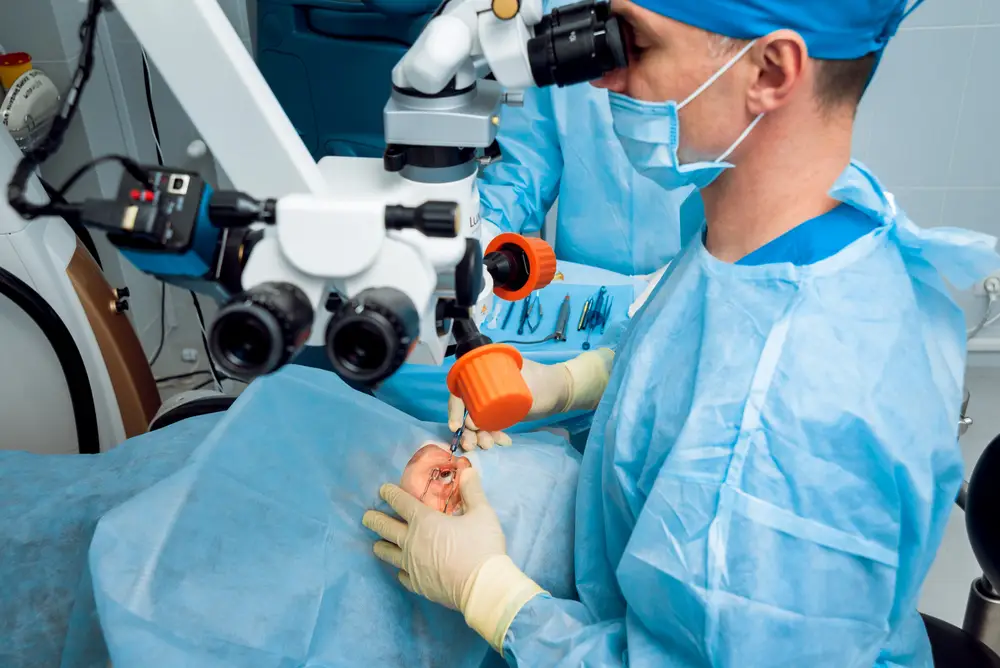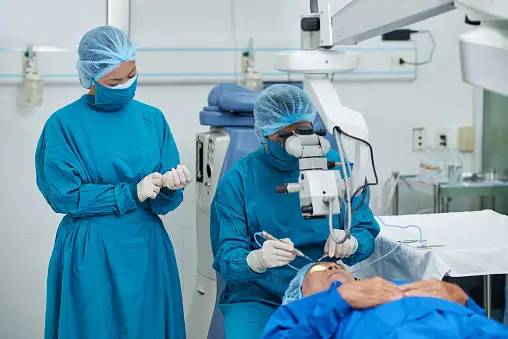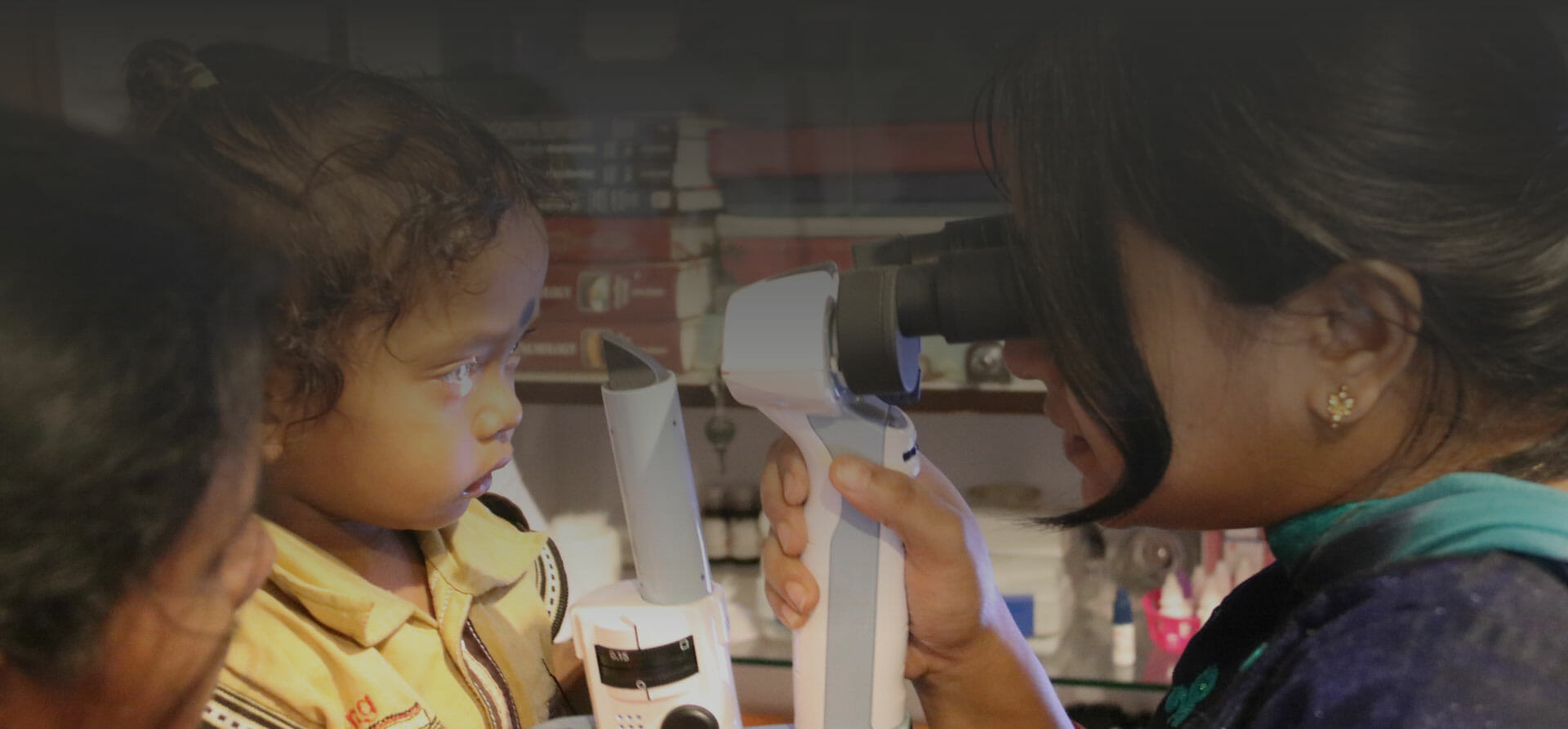If you’re struggling with low vision due to cataracts, cataract surgery might be the solution you need. This procedure involves removing the clouded lens of your eye and replacing it with a clear artificial one. In this blog, we’ll dive deep into everything you need to know about cataract surgery—from understanding the costs and evaluating safety, to what you can expect during recovery and how to handle potential complications. So, dive in, and let’s explore how cataract surgery can help restore your vision and quality of life!
Contents
Understanding Cataract Surgery

Cataract surgery is a straightforward procedure aimed at restoring vision clouded by cataracts. The most common method is phacoemulsification, often referred to as “phaco.” Here’s how it typically unfolds:
- Incision: A small incision is made in the eye to access the lens.
- Emulsification: An ultrasonic device breaks the cloudy lens into tiny pieces.
- Extraction: These pieces are gently suctioned out of the eye through the same incision.
- Lens Replacement: A clear, artificial intraocular lens (IOL) is inserted into the lens capsule, in the same location where the natural lens was.
This process is remarkably efficient, usually taking about 10 to 15 minutes per eye. Advances in technology have also led to the adoption of laser-assisted cataract surgery, which uses laser technology to perform some of the steps of the surgery, potentially increasing precision and reducing recovery time.
Both methods are typically performed on an outpatient basis, meaning you can go home the same day. There are no stitches, injections, or bandages required, making the recovery process smoother and quicker.
Cost of Cataract Surgery in 2024

The cost of cataract surgery in 2024 can vary widely based on several factors, including the type of lens implanted and the surgical technique used. Prices typically start from around Rs 15,000 and can go up to Rs 1,00,000. Here’s a breakdown of the different types of lenses available and how they can impact the cost:
- Monofocal (Distance Vision): These lenses are designed to provide clear distance vision, but glasses may still be needed for near tasks.
- Multifocal (Distance & Near Vision): These lenses offer the convenience of seeing well at multiple distances without glasses.
- EDOF (Extended Depth of Focus): These lenses provide a continuous range of vision, from distance to intermediate and somewhat near.
- Toric (Distance & Cylindrical Power): Ideal for patients with astigmatism, these lenses correct cylindrical power along with distance vision.
- Trifocal (Distance, Near & Computer Vision): These lenses cover all ranges, providing clear vision for distance, intermediate (computer use), and near tasks.
It’s important to discuss with your eye surgeon the best type of lens for your specific vision needs and lifestyle.
Donate To Support Cataract Surgeries!
At Eye Mantra Foundation, we are committed to making eye care accessible to everyone, especially the underprivileged sections of society. That’s why we provide free cataract surgeries or offer them at a very nominal price to those in need.
Your contribution can make a significant difference in someone’s life, helping restore not only their vision but also their independence and quality of life.

Your Help Can Make a Difference!
Cataract Is The Biggest Reason For Blindness!
With Every Donation, You’re Gifting a Cataract Surgery To Someone in Need!
Safety and Efficacy of Cataract Surgery
Cataract surgery is one of the most common and successful procedures performed worldwide. It boasts a high success rate, with over 95% of surgeries resulting in improved vision, assuming there are no other significant eye health issues.
Modern techniques like phacoemulsification and laser-assisted surgeries have enhanced the precision and safety of cataract removal, reducing the risk of complications.
Is Cataract Surgery Painful?
Cataract surgery is generally not painful. Most patients are given mild sedatives and local anesthesia to ensure comfort throughout the procedure. The surgery itself is quick, typically taking only about 10 to 15 minutes per eye. Post-operative discomfort is usually minimal and can often be managed with over-the-counter pain relievers. Most patients report only minor discomfort, such as a gritty feeling in the eye, which resolves within a few days after the surgery.
Potential Complications and Management

While cataract surgery is generally safe and effective, like any surgical procedure, it can come with potential complications.
Common Complications Include:
- Postoperative Infection (Endophthalmitis): Although rare, infections can occur following cataract surgery. This serious complication is managed aggressively with antibiotics, and in some cases, additional surgery may be required to resolve the infection.
- Inflammation: It’s common to experience mild to moderate inflammation after cataract surgery. This is typically managed with anti-inflammatory eye drops, which are prescribed for several weeks post-surgery.
- Issues with the Intraocular Lens (IOL): Problems such as dislocation or misalignment of the lens can occur. Minor adjustments might be needed post-surgery, or in rare cases, another surgical procedure may be necessary to reposition or replace the lens.
Less Common Complications:
- Retinal Detachment: Where the retina separates from the back of the eye. That’s rare, but if happens, urgent surgical treatment is required to repair the retina.
- Cystoid Macular Edema: This involves swelling in the central area of the retina (macula) and can affect vision.
- Posterior Capsule Opacification (PCO): Sometimes referred to as a secondary cataract, PCO can develop months or years after surgery, causing vision to become cloudy again.
The likelihood of experiencing serious complications from cataract surgery remains low. Most issues that arise are manageable and do not lead to long-term problems with vision.
Recovery Time and Expectations

Recovery after cataract surgery is usually quick and uncomplicated, with many patients noticing improvements in their vision almost immediately. Here’s what you can expect during the recovery period:
Timeline for Recovery:
- Immediate Post-Surgery: Patients typically go home on the same day of the surgery. Initial recovery, where major improvements in vision are noticeable, often occurs within the first 24 to 48 hours.
- Full Recovery: Complete healing generally takes about 4 to 6 weeks. During this time, your eye will adjust and your vision will stabilize.
Precautions to Take:
- Eye Protection: Wear sunglasses to protect your eyes from bright light and debris. At night, a protective shield might be recommended during the first week to prevent accidental rubbing while sleeping.
- Avoid Water: Keep water out of your eyes for at least a week to avoid infection. This includes water from showers, baths, and swimming pools.
- Medication: Use eye drops as prescribed to reduce inflammation and prevent infection.
Life After Cataract Surgery
Cataract surgery typically results in significant improvements in visual clarity, greatly enhancing the quality of life for most patients. Here’s what to expect post-surgery:
- Improvements in Vision: Most patients notice a dramatic improvement in visual clarity almost immediately after the recovery period, which can last from a few days to several weeks.
- Quality of Life Enhancements:
- Daily Activities: With improved vision, daily activities like reading, driving, and engaging in hobbies that require fine visual details become much easier and more enjoyable.
- Need for Eyeglasses: While many patients may still need to wear eyeglasses for certain activities, particularly reading, the overall dependence on glasses is usually significantly reduced.
Overall, life after cataract surgery is marked by improved vision and a better quality of life. Most people enjoy their new vision with minimal issues and can return to their daily routines with greater ease and comfort.
Conclusion
If you or someone you know is grappling with the challenges of cataracts, remember, you’re not alone. Cataract surgery at EyeMantra Foundation offers a promising solution to restore clear vision and significantly improve quality of life. Call us today at +91 9711116605 to book your free appointment
Your Small Gesture Can Mean a World of Difference!
At EyeMantra Foundation, we help the underprivileged regain their vision. Your small donation can make a profound difference in someone’s life. By joining hands with us, you can be the reason someone sees the world anew.
We invite you to contribute to this noble cause. Click on the Donate Now button and start making a difference today.
FAQs
1. How long do you rest after cataract surgery?
After cataract surgery, patients are typically advised to rest for the remainder of the day. Most people can resume normal activities within a couple of days, but it’s important to avoid strenuous activities for at least a few weeks to allow your eye to heal properly.
2. Can I watch TV after cataract surgery?
Yes, you can watch TV after cataract surgery, usually by the day after the procedure. However, you may find that your vision is blurry at first, and it’s important to blink regularly and take frequent breaks to prevent eye strain while your eye is still healing.
3. Is Cataract covered by Insurance?
Now, a common question that patients often ask is whether cataract surgery is covered under health insurance. The answer is yes; there is no need to be hospitalized for this. It is an outpatient procedure and is covered by every health insurance. Yes, sometimes the coverage for surgery is limited, so you must know the limit of the cost of your cataract surgery under your health insurance.
4. How long to wear eye shield at night after cataract surgery?
It is generally recommended to wear an eye shield at night for about a week after cataract surgery. This helps protect the eye from accidental rubbing or pressure while you sleep, which can interfere with the healing process.
